Bill would require Wisconsin to add lifesaving newborn test
WISCONSIN RAPIDS, Wis. - Wisconsin health officials are refusing to test newborns for a deadly disease until they get "more information." Now, a state senator is introducing a bill that would require it. He says newborn screening is necessary to save the next affected child from an "ultra-rare" disorder that is fatal unless it's detected in a baby's first 30 days alive.
It's easy to take seconds for granted until there aren't any left.
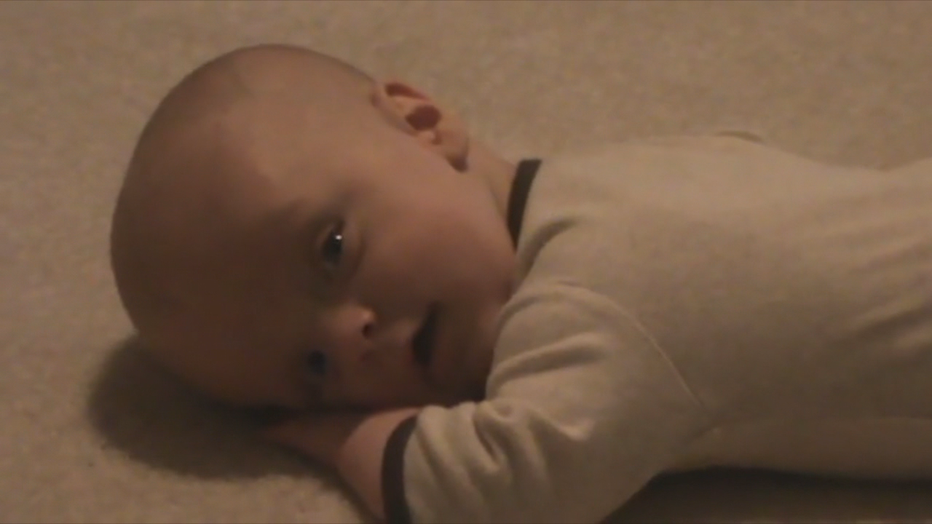
Kevin and Judy Cushman found that out the hardest way possible when their firstborn son, Collin, was diagnosed with a rare, genetic disorder known as Krabbe disease.
"It's tragic," said Dr. Barbara Burton at Children's Hospital of Chicago. "You lose the coating on the nerve fibers that transmit signals to one another."
Collin was diagnosed with Krabbe on Jan. 6, 2012. He died seven years later.
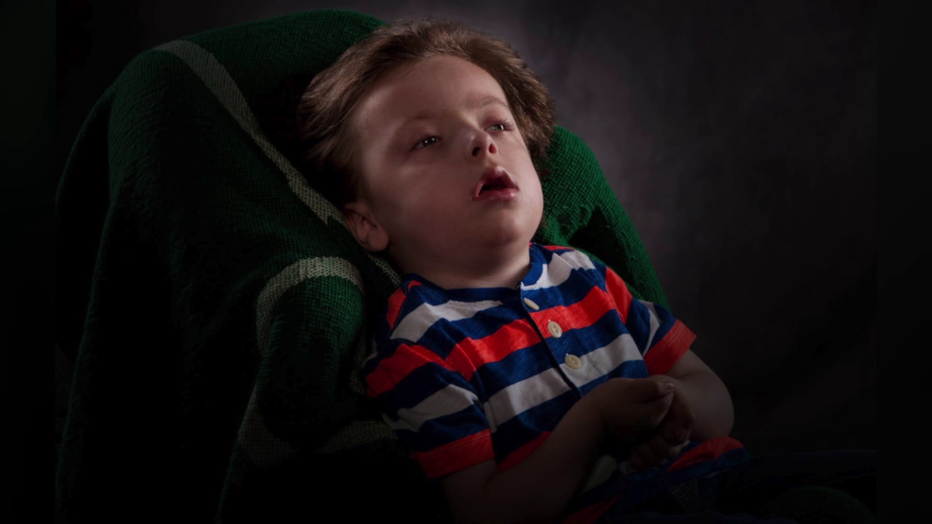
Collin Cushman was diagnosed with Krabbe Disease on January 6, 2012. He died 7 years later, January 6, 2019.
"And that hurts," said Collin's father, Kevin Cushman.
"We just don’t want this to happen to someone else," said his mother, Judy.
When Collin was born in December 2010, there was no sign anything was wrong. But by the time he was 9 months old, his muscles had stiffened. His reactions slowed. He lost the ability to move, talk or even smile.
"It was very difficult for us as parents to watch that," Kevin said.
For the next seven years, the Cushmans hugged a little boy who could not hug them back.
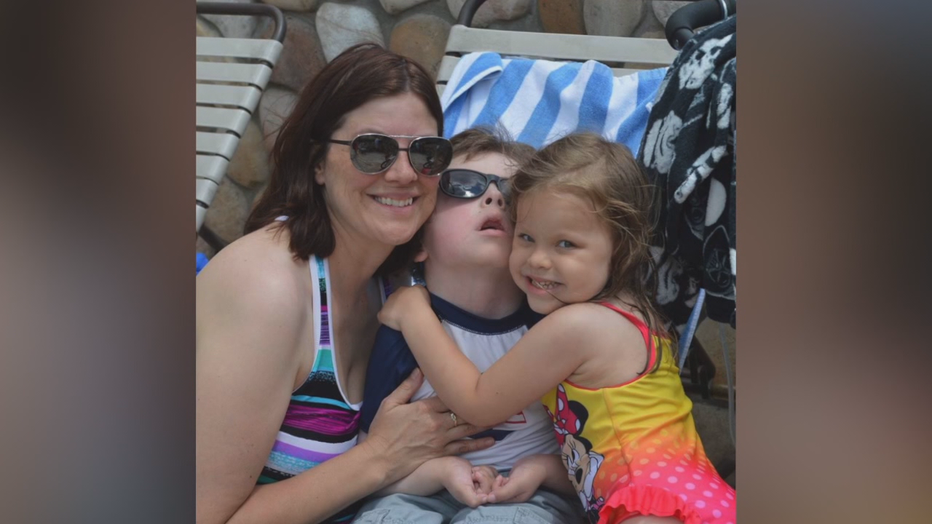
"We took him on vacations," Judy said. "But it was hard to know if he was enjoying it."
"We know more about Krabbe disease than we ever knew or will ever know about Collin," Kevin said. "Because he could never tell us anything."
Collin survived until the age of 8. Most Krabbe children die before they're 2.
"Those children’s lives could be saved," said Dr. Joanna Kurtzberg, a pediatric oncologist at Duke University. "Early intervention is the only way to really help children with this disease."
While there is no cure for Krabbe, Dr. Kurtzberg says there is a treatment. She ought to know. She has performed numerous bone marrow transplants on infants diagnosed with Krabbe.
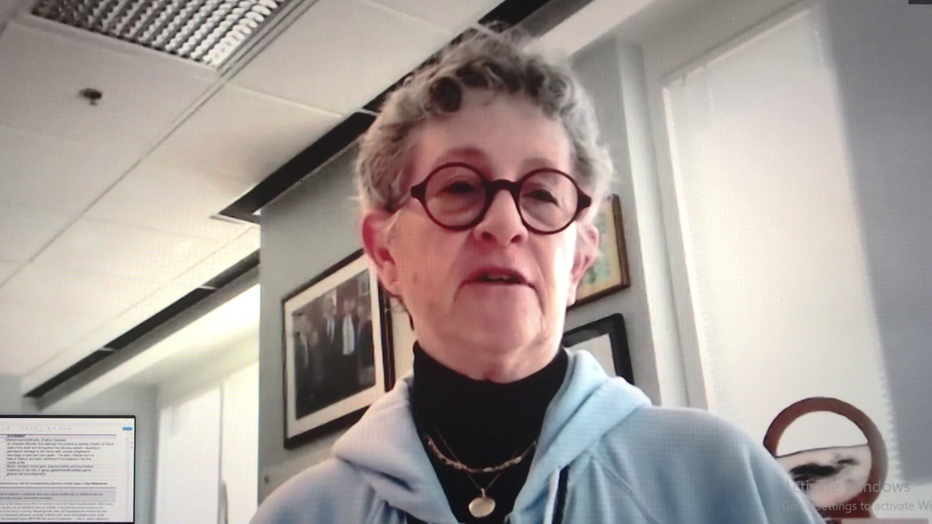
Dr. Joanne Kurtzberg is a pediatric oncologist at Duke University. She performs bone marrow transplants on infants diagnosed with Krabbe.
"The difference between transplant and no transplant is dramatic," she said.
But the transplant is only effective if it's done in the first 30 days of a baby's life. Trouble is, Krabbe symptoms don't typically surface until months later.
"Once symptoms show themselves, it's too late," Kevin said.
And that means time is of the essence.
"So newborn screening is essential," Dr. Kurtzberg said.
"That’s the only way that these kiddos will have hope at a better quality of life," Kevin said.
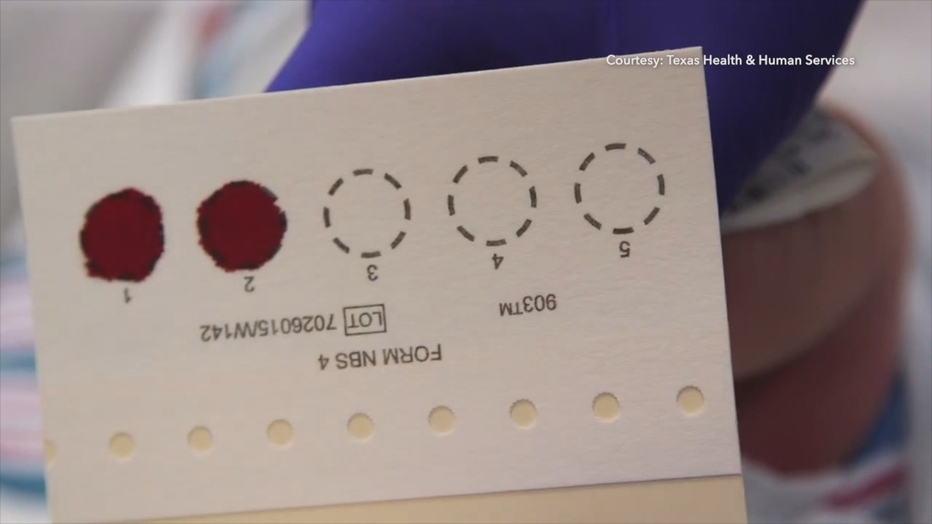
The first state to test for Krabbe disease at birth was New York in 2006. Since then, six other states (all in the Midwest) have started their own testing program, including Missouri, Illinois, Indiana, Ohio, Kentucky and Tennessee. For the past six years, the Cushman family has been trying to convince the state of Wisconsin to join the list.
"It’s time, ladies and gentlemen," Kevin said, during a hearing on Krabbe testing last year.
Time and time again, the state has turned them down, with the latest rejection arriving by mail last month.
That's why State Senator Patrick Testin is taking matters into his own hands. If the health department won't screen for Krabbe on its own, he wants to make it state law, introducing a bill that would do just that.
"I think it’s high time that we, as a state, consider Krabbe for the newborn screening list," he said.
Last year, DHS Deputy Administrator Chuck Warzecka told FOX6 News they need more evidence that a treatment exists that is both safe and effective.
"We need to have reasonable expectation that the screening will help make a difference in a newborn's life," he said.
Randy and Tanys Thoms say the proof is right in front of them.
"The obvious effects of the treatment are sitting right here," Tanys said.
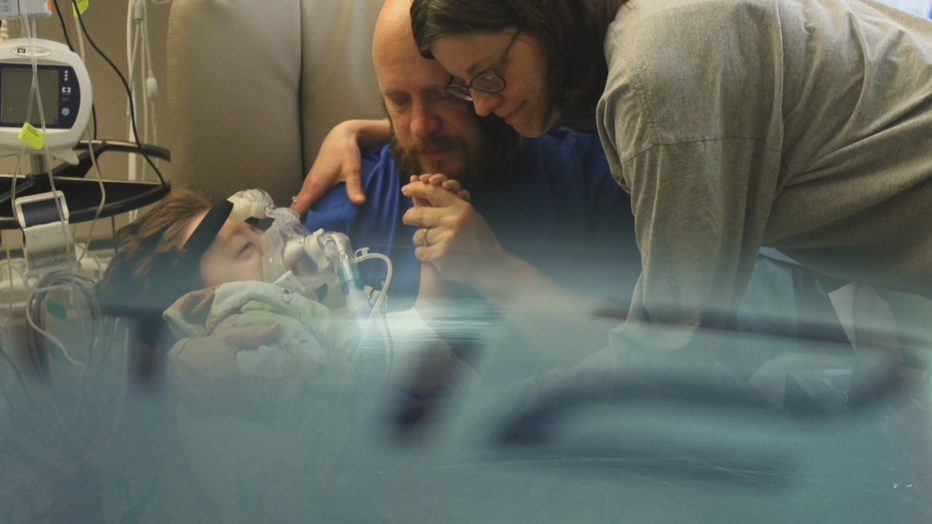
Their youngest son, Jeremy Thoms, is now 20 years old. He is one of the oldest living Krabbe patients in America.
"He sings, he laughs, he wants to learn to play piano, he puts together Legos," she said.
Jeremy can no longer walk. His speech is deliberate. He requires special care. But, his parents say, he is living a good life.
"I wouldn’t trade my son for the world," Randy said.
Jeremy has lived into adulthood only because his parents were able to get him a transplant at Duke shortly after he was born. They only knew to get the transplant because Jeremy was tested for Krabbe at birth and they only knew to get him tested because his older brother, Alex, had already died of Krabbe disease a few years earlier.

Tanys Thoms (left) and her husband, Randy Thoms (right), say their 20-year-old son Jeremy (center) is proof that early diagnosis of Krabbe can save lives.
"We didn’t get to know our son, Alex, because he passed away at 13 months old," Randy said. "I know Jeremy."
In other words, it took one life to save another.
"That’s an awfully high price to pay," said FOX6 Investigator Bryan Polcyn.
"It is," Kevin Cushman responded.
Compared to that, he says, the actual cost of Krabbe screening would be trivial -- roughly $2 to $4 per test.
"There's no amount we wouldn't pay to have Collin here," Kevin said.
"It is so worth the cost," Randy said.
"You can’t put a price on it!" Tanys said.
Of course, there's nothing to stop the Cushmans from starting over and nominating Krabbe for inclusion in the state's newborn screening program once again. In fact, the state has already encouraged them to do just that.
"Basically, they’re wanting us to resubmit everything again," Judy said.
Of course, that will take a lot more time. Meanwhile, every delay increases the chance that another Wisconsin family will have a baby with Krabbe, but won't find out until it's too late.
FREE DOWNLOAD: Get breaking news alerts in the FOX6 News app for iOS or Android
"And no family should have to go through that," Kevin said.
Krabbe disease affects fewer than 1 in 100,000 newborns.There are more than 60,000 babies born in Wisconsin each year. That means the next case of Krabbe could be diagnosed at any time. Proponents of testing say without it, that next child will not survive.
Senator Testin's bill is still circulating in Madison as he seeks co-sponsors. It has not yet been assigned an official bill number.
Featured
Wisconsin COVID-19 registry now live; if eligible schedule appointment
The Wisconsin COVID-19 Vaccine Registry went live on Wednesday, March 3.
Featured
MPD creates new Traffic Safety Unit to combat reckless driving
The Milwaukee Police Department and city officials on Wednesday, March 3 announced the creation of a new Traffic Safety Unit (TSU) within the police department.
Featured
Greendale police pull over speeder and uncover drugs, money
Greendale police stopped a vehicle for speeding on Grange Avenue Tuesday night, March 2 -- and came away with much more.




